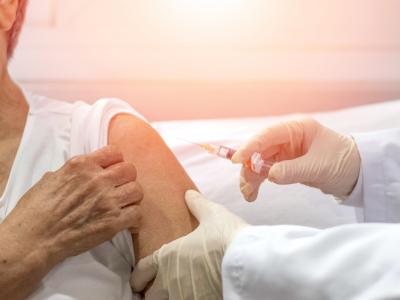CARB-X to fund development of new class of broad-spectrum antibiotics
CARB-X announced today that it is awarding $2.91 million to German drug developer Evotec SE to develop a new class of antibiotics to treat infections caused by multidrug-resistant bacteria.
Under the terms of the agreement, Evotec will in-license an antibiotics development program from US biotechnology company Resolute Therapeutics, and continue preclinical development using its proprietary drug discovery and development programs. The goal of the partnership is to develop a novel class of broad-spectrum antibiotics that cover gram-negative and gram-positive pathogens.
Evotec will be eligible for an additional $5.5 million in funding from CARB-X (the Combating Antibiotic-Resistant Bacteria Biopharmaceutical Accelerator) if certain project milestones are met.
"New antibiotics are urgently needed, particularly those that hold significant promise to overcome antimicrobial resistance," Evotec chief scientific officer Cord Dohrmann said in a CARB-X press release.
Since its launch in 2016, CARB-X has awarded $250 million to 67 projects targeting drug-resistant bacteria.
Aug 11 CARB-X press release
Study: High antibiotic prescribing linked to patients' future receipt of antibiotics
Patients who were treated by a high–antibiotic prescribing physician for an acute respiratory infection (ARI) were more likely to receive antibiotics for an ARI in the subsequent year, according to the results of a study published yesterday in Clinical Infectious Diseases.
In the study, a team led by researchers from Harvard Medical School examined encounter data from a US health insurer, looking specifically for patients under the age of 65 with a visit to an urgent care center for an ARI from January 2013 through Jun 10, 2016 and a prescription for an antibiotic filled the day before, the day of, or the 2 days after the visit. They then categorized clinicians within each urgent care center into quartiles based on their antibiotic prescribing rate and examined the association between the clinicians' antibiotic rate during the index visit and the patients' rate of ARI antibiotic receipt in the subsequent year. They also examined subsequent ARI antibiotic receipt among patients' spouses.
The hypothesis was that patients who saw high-prescribing doctors might be more likely to seek care for ARIs and receive an antibiotic in the subsequent year and that their spouses might be as well.
Across 232,256 visits at 736 urgent care centers, ARI antibiotic prescribing rates were 42.1% in the lowest quartile of clinicians and 80.2% in the highest quartile of clinicians. In the year after the index ARI visit, patients who saw the highest-prescribing clinicians received 3 more antibiotic fills per 100 people, or 14.6% more antibiotic fills, over the subsequent year compared with those who saw the lowest prescribers. The increase was also observed among the patients' spouses. The increase was largely driven by the increased number of ARI visits (+ 5.6 ARI visits per 100 patients) among patients who saw high-prescribing clinicians, rather than a higher prescribing rate during those subsequent visits.
"Our results emphasize the importance of how care in one encounter drives a patient to seek care for subsequent ARIs," the authors of the study wrote. "A reduction in antibiotic prescribing may create a feedback loop such that more judicious antibiotic use in one encounter may result in fewer future antibiotics. Thus, an additional benefit of greater antibiotic stewardship is the establishment of new norms for patients on when antibiotics are needed."
Aug 10 Clin Infect Dis abstract












